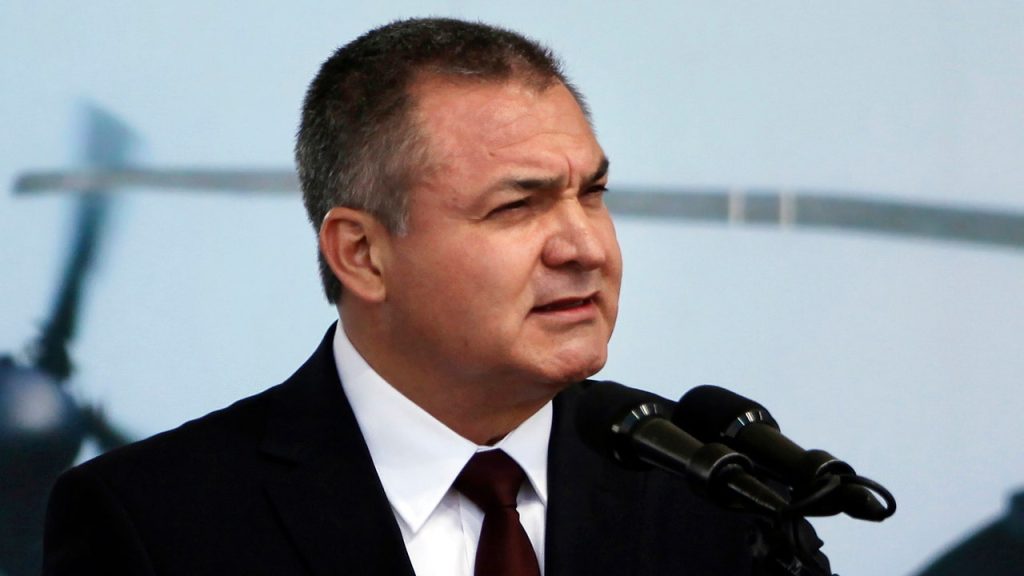Genaro García Luna, Mexico’s former secretary of public security, was sentenced to more than 38 years in a U.S. prison after being convicted by a New York jury in 2023 of taking millions of dollars in bribes to protect the violent Sinaloa cartel that he was supposedly combating. During his sentencing hearing, García Luna continued to maintain his innocence, claiming that the case against him was based on false information from criminals and the Mexican government. Despite his protests, he was sentenced to over 38 years in prison and a $2 million fine. García Luna, who was once considered the architect of Mexico’s war on drug cartels, served as a key figure in Mexico’s government from 2006 to 2012 under then-President Felipe Calderón.
U.S. prosecutors alleged that García Luna received millions of dollars in exchange for providing the cartel with valuable information, including intelligence on investigations against them, details on rival gangs, and safe passage for large quantities of drugs. These actions facilitated the trafficking of over 1 million kilograms of cocaine through Mexico and into the United States. García Luna was also accused of sabotaging legitimate police operations aimed at apprehending cartel leaders and enabling a corrupt system that allowed violent cartels to thrive. During the trial, evidence was presented of García Luna’s close ties to drug traffickers, including allegations that he received millions of dollars in payoffs and conspired to bribe inmates to support false allegations in court.
Following his sentencing, former President Calderón, under whom García Luna served, expressed respect for the court’s decision but maintained that he never had verifiable evidence of his criminal activities. Calderón emphasized that his decision to take on the cartels was one of the most difficult of his life, stating that he would do it again because it was the right thing to do. Outside the courthouse, a group of protesters celebrated the verdict, with some holding signs denouncing Calderón’s political party. U.S. District Judge Brian Cogan, who presided over the case, rejected calls for a life sentence and imposed a term of 38 years and four months in addition to a $2 million fine.
García Luna’s arrest and conviction became a political issue in Mexico, with President Claudia Sheinbaum commenting on the case and stating that it highlighted the ties between drug trafficking and government officials. Sheinbaum and her predecessor, Andrés Manuel López Obrador, used García Luna’s case as a tool against Calderón’s National Action Party in the Mexican presidential election, portraying him as a symbol of corruption and mismanagement of the drug war. López Obrador criticized the U.S. authorities’ arrest of former Mexican Defense Secretary Salvador Cienfuegos in 2020, accusing the DEA of fabricating evidence and pushing for his release, which ultimately happened.
Despite efforts by Mexican authorities to address the root causes of violence, such as poverty, the levels of violence and drug trafficking in the country persist. The case of García Luna serves as a reminder of the deep-rooted corruption and collusion between government officials and drug cartels in Mexico, highlighting the ongoing challenges faced by law enforcement and policymakers in combating organized crime. García Luna’s conviction reflects a broader issue of corruption and impunity within Mexico’s institutions, underscoring the need for increased transparency, accountability, and international cooperation in addressing transnational crime.


